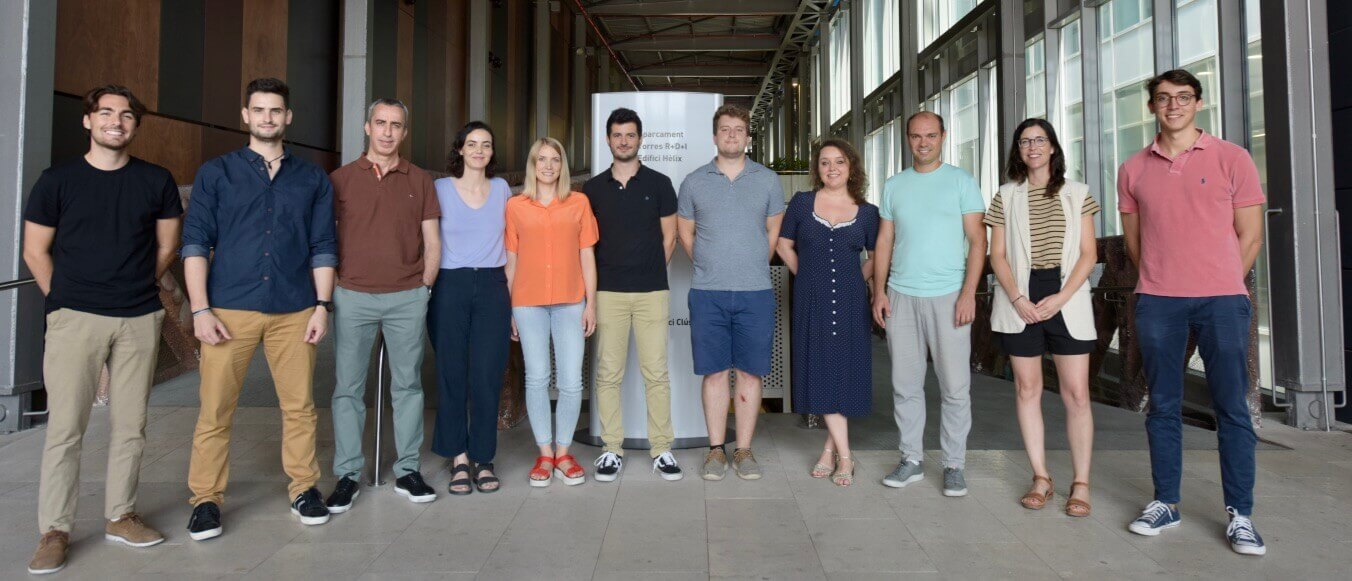
Newborn Solutions expands the international clinical trial of Neosonics device to Morocco
The medical device startup Newborn Solutions -based in the Barcelona Science Park and focused on the development of non-invasive technology for detection and monitoring of infant meningitis and other infections in serous body fluids- has just received official approval from the Moroccan health authorities to carry out its clinical trial in Morocco. The achievement of this milestone allows the inclusion of the Hôpital d’Enfants de Rabat (HER), a reference paediatric centre in the country.
Newborn Solutions has developed Neosonics, a non-invasive medical device that automatically counts white blood cells in the cerebrospinal fluid directly below the infant’s fontanelle in a matter of seconds. The device uses high-resolution ultrasound, novel coupling materials and artificial intelligence (AI) algorithms to accurately rule out or confirm meningitis in neonates and infants quickly, easily and cost-effectively.
The safety of the Neosonics device has been validated in an international clinical trial involving three hospitals in Spain (Hospital Universitario La Paz and Hospital Univeristario Quirónsalud in Madrid and Hospital Sant Joan de Déu in Barcelona) and two centers in Mozambique (CISM: Manhiça Health Research Center and Maputo Central Hospital). In the efficacy phase, after receiving authorisation from the Moroccan Ministry of Health, the Hôpital d’Enfants in Rabat will be incorporated. The first results of the clinical trial will be presented during the second quarter of this year. The results of the proof-of-concept test show 100% sensitivity, 90% specificity in vivo and 92% accuracy in vitro.
“The start of this clinical trial in Morocco is very important to ensure the recruitment of the necessary patients, and to increase the diversity of the population to test the efficacy of the Neosonics device in a country with a higher incidence of meningitis than Spain,” explains Rita Quesada, Regulatory Lead of Newborn Solutions.
The collaboration with the Hôpital d’Enfants in Rabat -which is part of the Ibn Sina University Hospital (CHU)- began in 2020 within the framework of a programme funded by the Spanish Agency for International Development Cooperation (AECID) and led by the Barcelona Institute for Global Health (ISGlobal), to develop the future implementation of the Neosonics device in the Moroccan healthcare system in its application for the screening and monitoring of childhood meningitis. Over the course of these two years, training of healthcare personnel in the use of the device has been carried out.
A historic authorisation in Morocco
“This approval represents the overcoming of a high-risk regulatory barrier and says a lot about our ability to adapt to this process and the good work carried out with our partners at ISGlobal”, states Javier Jiménez, CEO of Newborn Solutions. “It has been a year-long process, as, until now, no other company had applied for authorisation to conduct a clinical trial with a medical device in Morocco, so the authorities (Direction des Médicaments et Pharmacies of the Moroccan Ministry of Health) have established with us the requirements for the application. In fact, the most complicated requirement was to obtain a legal representative in the country who was either a distributor or manufacturer of the medical device, as this was one of the criteria to be met,” adds Rita Quesada.
Thanks to the support of the Catalonia Trade & Investment’s office in Casablanca, the identification of a distribution company in Morocco was facilitated, as well as specific knowledge of the local market.
ISGlobal and Newborn Solutions, an essential alliance
ISGlobal has been present in Morocco for more than 20 years, and being able to rely on the institution’s local network has facilitated the development of the project for the Newborn Solutions team. “Obtaining the first DMP approval for the rigorous evaluation of a medical device in Morocco is a giant step forward that will undoubtedly contribute to reducing the huge mismatch between the burden of infectious diseases and the few research resources dedicated to them in the country”, reveals Quique Bassat, ICREA research professor at ISGlobal, who is leading the project at the institution. Bassat, Clinical Lead in the Newborn Solutions team, has played an essential role in establishing the collaboration and strengthening the current relationship with the Hôpital d’Enfants de Rabat and the Moroccan Ministry of Health. “In fact, future collaborations with the same hospital for different applications are already being considered,” adds Quesada.
“This approval and the start of the clinical trial marks a historic precedent for the clinical team involved in the project and for the hospital, which gains recognition and visibility. It will undoubtedly be a reference for future research teams and will make it possible for new project opportunities and collaborations to arise”, remarks Sara Arias, ISGlobal researcher in Rabat, whose role has been key to the implementation of the project, both in strengthening the relationship with the clinical team, as well as with the administrative arrangements with the local authorities and the distribution company.




